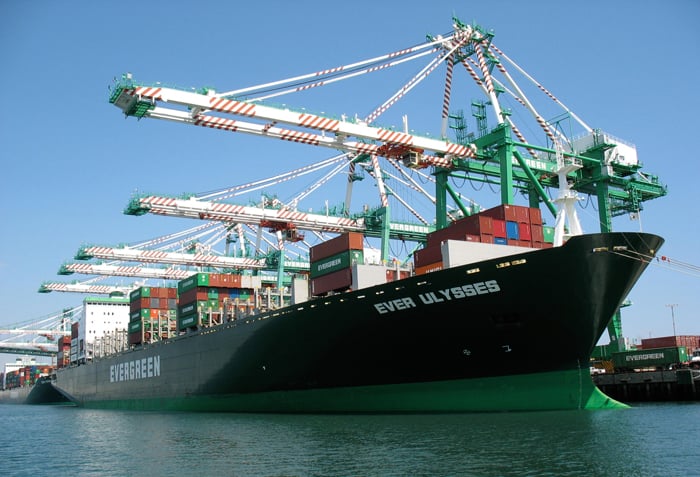
What is our ultimate interest in trade policy?
Vladimir Putin’s encroachments on Ukraine have drawn Western investment and trade sanctions in response. U.S. sanctions are levied against certain Russian individuals, and serve reasonable diplomatic notice of our opposition. However, we should not look to trade and other economic sanctions as a long term answer to Putin’s aggression.
First, it is clear that Putin does not care about our sanctions, in part because he has the ability to impose economic costs on us. He could also go further, for instance and disrupt our use of Central Asian routes to support our troops in Afghanistan. Beyond that, Putin’s basic political premise is that Russia faces a zero sum conflict of RealPolitik with the West. Sanctions will not weaken his policies of repression and aggression. But economic isolation may corroborate Putin’s claims by showing Russians that we consider them outsiders to the circle of free peoples.
Diplomatic isolation of Putin’s regime is necessary. But Putin’s moves against Ukraine are geopolitical actions. Long term, economic measures are no substitute for geopolitical responses for two reasons. One is their ineffectiveness. The second is that economic policy has an important purpose in its own right.
With economic growth comes a comprehensive type of development, characterized by Amartya Sen as the increase in the “’capabilities’ of persons to live the kind of lives they value – and have reason to value.” Much political protest in the developing world, in Brazil, Turkey, India, Thailand, and Ukraine, is against injustice and corruption, reflecting a rising sense of enablement among ordinary people.
These freedom movements vindicate America’s founding faith. They are evidence for our belief, as “self evident truth,” in unalienable rights, equally endowed, as the basis for just government. Such corroboration of our founding faith, in so many diverse countries, reveals a natural and universal empathy that America could tap, which far outstrips the manipulations and propaganda of oppressive and corrupt regimes.
Current U.S. practice squanders this resource. Too often, our declamations of principle conflict with our narrow trade interests, and our professions for democracy diminish when energy needs or special interests are threatened. So, in the case of Ukraine, our track record leaves open to question whether we object to Putin’s encroachments for freedom’s sake, or because we are losing a geopolitical contest.
Economic liberalization sparks growth that enables people to assert their freedom. This enablement is America’s proper project. Economic sanctions can be used to oppose Putin. But sanctions divert policy from our broad project. We should only disrupt our project if the sanctions respond to matters of unambiguous aggressiveness, and only if they might actually alter the target regime’s conduct. This discipline applies also to energy policy, investment regulation, and, particularly, to arrangements such as the TTIP process for transatlantic trade and investment liberalization.
In the long view, Putin is weak. His political appeal is to resentful nationalism. This gives him a claim to legitimate interests where residual Soviet Russian populations value their nostalgia more than their future. Beyond that, his influence rests only on raw power. He makes military threats when he can get away with it, and deploys Russia’s economic resources for political concessions.
We oppose Putin to limit his use of force. We must raise a bulwark against his armed coercions. He may not be Hitler or Stalin, but to assume he has benign or reasonable goals is dangerous. We also must de-legitimize his use of economics as a geopolitical weapon.
Any countermeasure should aim directly at Putin’s corresponding use of power. His arms-backed coercions call for arms – backed lines in the sand, drawn in geopolitical (not necessarily geographic) terms. The West may need to adjust its military capacities to give teeth to these terms. We should build economic protections; for instance by exporting more gas and oil to Europe. But each such move should respond directly to Putin’s corresponding threat, to distinguish our economic norms from his weaponization of resources. Most important, we should announce all these measures as a homeowner might discuss his alarm system: unpleasant contingencies necessitated by a rise in crime.
We might elect to isolate Putin economically, but we should take care. If we lurch from sanctions on Russia to sanctions on Iran to sanctions on Syria we use our trade and economic policies as geopolitical weapons just as Putin does. Rather than subordinating our project of growth and freedom to geopolitical spats, we should re-affirm our larger commitment, and discipline our conduct to it. This will build on the untapped reservoir of good will attendant on our own foundation in freedom. As it happens, the affinities we build and the freedoms we enable will undermine governments that serve the governors. But we have no stake in the fate of any particular regime: should Putin alter his behavior to serve the Russian people, we will applaud. Meanwhile, unless we make him the star, he is a sideshow. Our project is freedom.